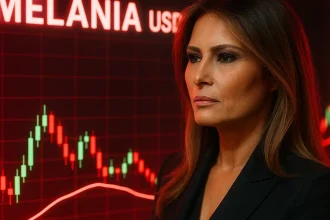U.S. Jury Deadlocks on Tornado Cash Founder’s Money Laundering Charges
In a significant legal development, a U.S. jury has reached an impasse on key charges against Roman Storm, the founder of the cryptocurrency mixer Tornado Cash. While the jury convicted Storm of conspiracy to operate an unlicensed money transmitting business—a charge carrying a potential five-year sentence—they were unable to agree on more severe allegations of money laundering and sanctions evasion. These latter charges, each with potential 20-year sentences, stem from accusations that Storm facilitated the laundering of over $1 billion, including funds linked to the North Korean Lazarus Group. Storm has maintained his innocence, asserting that his software was not designed to aid criminal activities. The case underscores the ongoing challenges in regulating cryptocurrency platforms and the complexities involved in distinguishing between technological innovation and illicit facilitation.
President Trump to Sign Executive Order Allowing Alternative Assets in 401(k) Plans
President Donald Trump is poised to sign an executive order that would permit the inclusion of alternative assets—such as private equity, real estate, and cryptocurrencies—in 401(k) retirement plans. This move aims to diversify investment options for American workers and could significantly benefit major asset managers by granting them access to the $12 trillion defined contribution retirement fund market. While proponents argue that this initiative offers greater investment flexibility, critics caution that it may introduce increased financial risks for investors. The order also directs the Labor Secretary to collaborate with other federal agencies to explore necessary regulatory changes to support this shift, reflecting the administration’s broader push to integrate cryptocurrencies into the mainstream financial system.
SEC Announces Sweeping Plans to Accommodate Cryptocurrencies
The U.S. Securities and Exchange Commission (SEC), under Chair Paul Atkins, has unveiled a comprehensive plan to overhaul capital markets regulations to better accommodate cryptocurrencies and blockchain-based trading. This initiative includes crafting clear guidelines to determine when a crypto token is classified as a security, introducing new disclosure requirements, and providing regulatory exemptions. Additionally, the SEC aims to assist firms in launching tokenized securities—blockchain-based versions of traditional stocks and funds. Framed as a “generational opportunity,” this plan marks a significant shift from previous regulatory approaches and aligns with the administration’s pro-crypto stance. If implemented, these changes could deeply integrate cryptocurrency with traditional finance in the U.S., signaling a new era of regulatory acceptance and support for digital assets.
White House Advocates for Widespread Integration of Cryptocurrency
The Trump administration is aggressively promoting the integration of cryptocurrency across various sectors of the U.S. economy. A recently released 160-page report outlines policy recommendations aimed at accelerating crypto adoption in areas such as taxation, banking, retirement, mortgages, and cybersecurity. The report calls on regulatory agencies—including the SEC, CFTC, IRS, and Treasury—to act swiftly in removing compliance barriers and providing the clarity needed to foster innovation. Emphasizing neutral regulatory treatment for the crypto industry, the document advocates for clearer processes for obtaining banking charters and Federal Reserve accounts, and encourages steps to facilitate the legal use and trading of digital assets. This coordinated effort underscores the administration’s commitment to ushering in what it terms a “Golden Age” for American entrepreneurship and digital asset technology.
President Trump Signs Stablecoin Regulations into Law
In a landmark move for the cryptocurrency industry, President Donald Trump has signed the GENIUS Act into law, establishing consumer protections and regulatory frameworks for stablecoins—digital currencies tied to stable assets like the U.S. dollar to minimize volatility. The bipartisan legislation prohibits members of Congress and their families from profiting from stablecoins, though this restriction does not apply to the president—a notable exemption given Trump’s and his family’s stakes in crypto company World Liberty Financial. This act is part of broader efforts by the administration to support the industry, including halting several SEC enforcement actions. Two additional crypto-focused bills enhancing market structure and preventing the Federal Reserve from creating a digital currency have also passed the House and await Senate approval. This legislative momentum reflects the administration’s evolving stance from skepticism to active support of the cryptocurrency sector.






